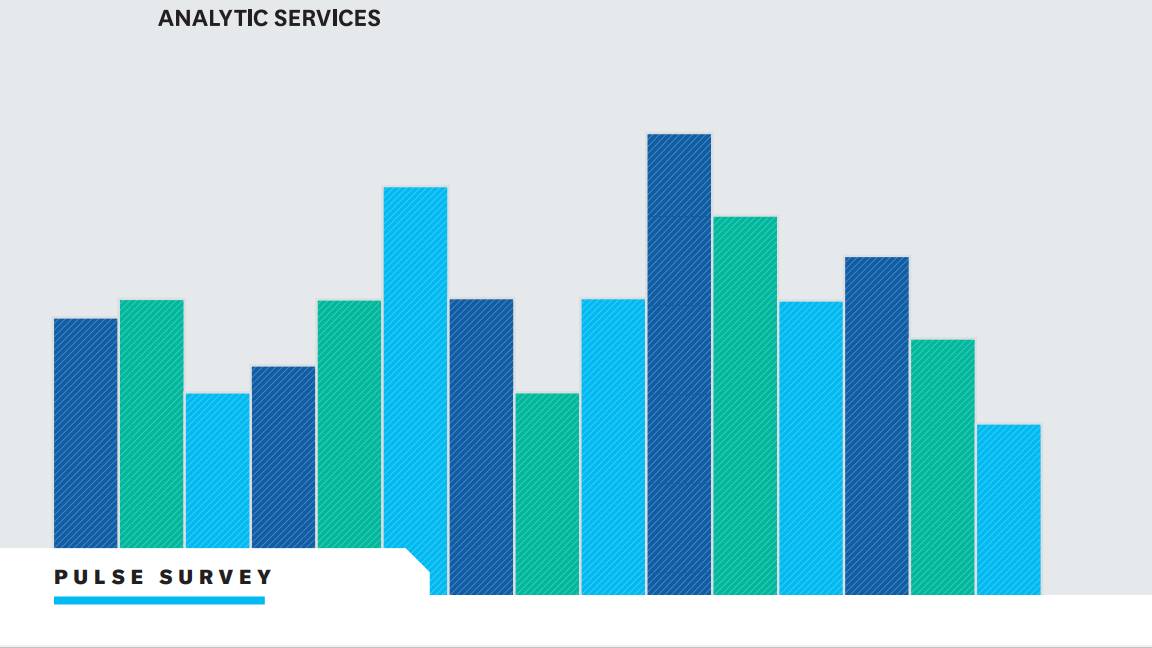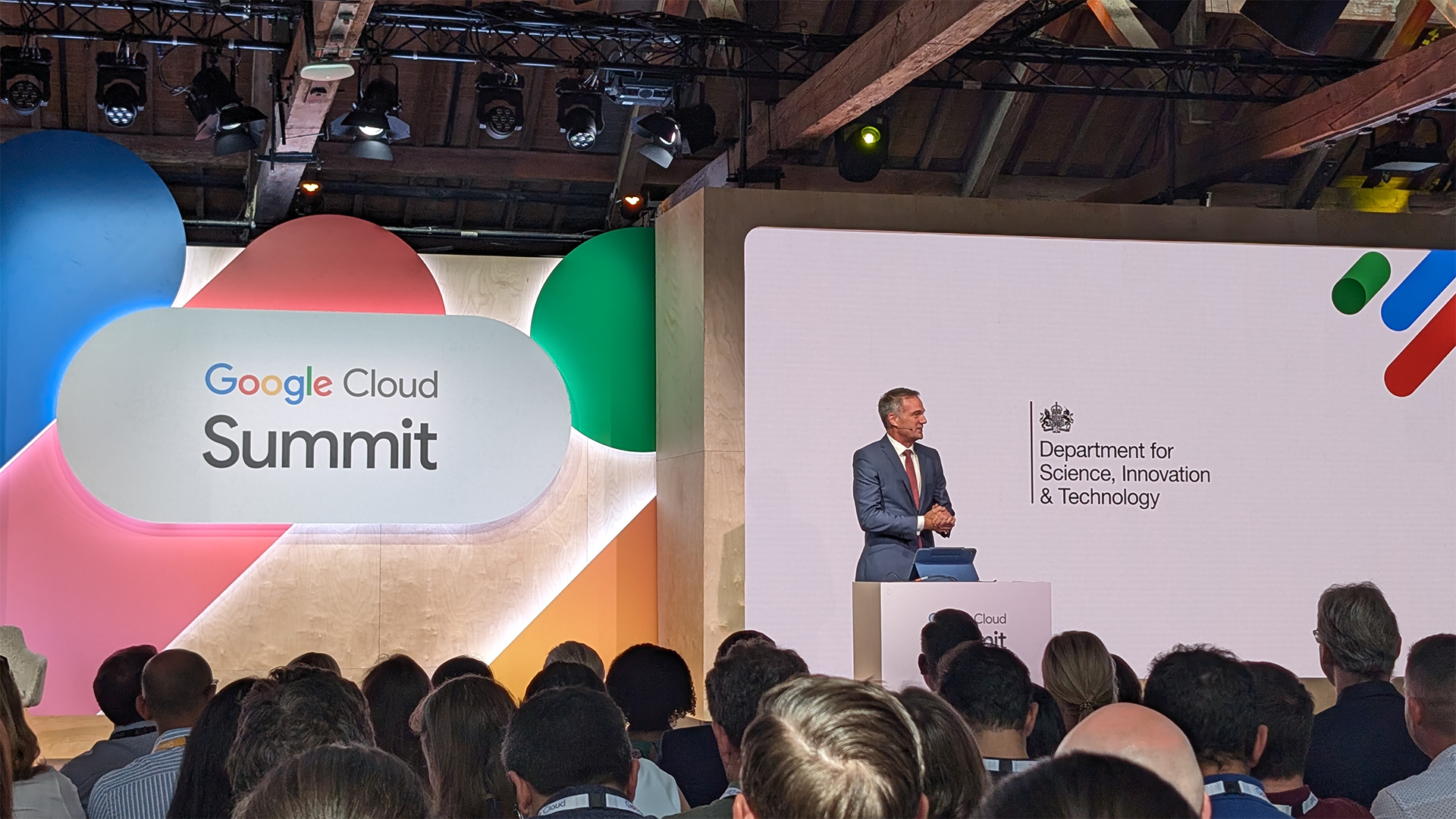AI could help UK government stretch budgets, says Google Cloud
The public sector needs to overcome significant barriers to make full use of AI


Rolling out generative AI solutions could help the UK government stretch budgets further, according to a report from Google Cloud, but public sector workers said challenges around regulation, skills, and data need to be solved first.
Google Cloud called for everything from healthcare to policing to be automated, following a survey of 415 public sector workers. The report notes the UK treasury has a target to slash budgets by £12 billion, suggesting automation could help achieve that goal by freeing up £38 billion in staff time and costs by 2030.
All told, that would include freeing up time for 3.7 million GP appointments and improving teacher-to-student ratios by 16%, the tech giant said.
AI could also help staff, with 61% of the surveyed public administration workers saying overwork had increased over the last five years, while another seven-in-ten stated morale was down.
Challenges to AI adoption
However, few had yet rolled out AI for day-to-day processes, with just 12% of public administration managers saying they had significantly deployed AI tools.
"The research highlights that many public administration workers recognise the potential of AI tools but are still early on in the overall process of adoption," said Ian Burgess, UKI Public Sector Leader at Google Cloud.
"Two-thirds of public administration managers agreed that AI will change the way the public sector operates forever — but just 12% said that they had already significantly deployed AI tools."
Sign up today and you will receive a free copy of our Future Focus 2025 report - the leading guidance on AI, cybersecurity and other IT challenges as per 700+ senior executives
That likely comes as little surprise, as the public sector often trails private industry when it comes to rolling out new technologies — and for good reason. Tighter budgets make it more difficult to run trials of nascent technologies such as generative AI, while the use of public sector data requires care — particularly in sensitive areas such as healthcare and policing.
"Despite their openness to AI integration, concerns around data security and legal implications remain significant barriers," Burgess said.
"The report stresses the need for addressing these concerns and equipping the public sector workforce with the necessary skills to effectively utilize AI. Building trust and transparency in AI implementation is crucial for its successful adoption in the UK public sector."
Only a third of public sector managers surveyed by Google Cloud said their staff had the necessary skills to effectively use AI, while 55% said they would need access to better structured datasets, while keeping in mind security and legal liabilities.
"60% of public administration managers agreed that there were legal or regulatory barriers that would make them cautious about using AI tools more extensively," Burgess added. "Openly communicating about how AI is being used to foster public trust and understanding."
More AI required?
The UK public sector has already applied AI to a variety of use cases, from detecting fraud to prioritizing access to housing benefits and assigning risk scores to convicted prisoners, though the Public Law Project has criticised such early efforts for a lack of transparency — which Google Cloud said was necessary to build public trust in AI and automation.
RELATED WHITEPAPER

As part of its Tracking Automated Government (TAG) project, the Public Law Project has identified 55 automated decision making tools in use as of last year.
"The Government needs to be forthright about how and where [automated decision making systems] are in use, but it has chosen secrecy by default," it said at the time.
As such, Google Cloud called for AI to be used in less controversial ways, notably for automation of routine tasks, rather than decision making.
AI is no silver bullet
Earlier this year, the Tony Blair Institute issued a report claiming the government could slash workforce time spent on tasks by a fifth using AI automation.
That includes hunting for fraud as well as avoiding administrative errors, which combined cost the Department for Work and Pensions (DWP) £9 billion annually.
Former prime minister Tony Blair said at the time: "Government's all about process. You can automate a lot of these processes… In the DWP, where we've done a deep dive with one of Britain’s leading AI companies, we believe that you could automate 40% of the tasks there, and also give a much better service to people."
However, industry experts said AI isn't necessarily a "silver bullet", as organizations must ensure they implement the technology correctly to see true gains.
Freelance journalist Nicole Kobie first started writing for ITPro in 2007, with bylines in New Scientist, Wired, PC Pro and many more.
Nicole the author of a book about the history of technology, The Long History of the Future.
-
 The modern workplace: Standardizing collaboration for the enterprise IT leader
The modern workplace: Standardizing collaboration for the enterprise IT leaderHow Barco ClickShare Hub is redefining the meeting room
-
 Interim CISA chief uploaded sensitive documents to a public version of ChatGPT
Interim CISA chief uploaded sensitive documents to a public version of ChatGPTNews The incident at CISA raises yet more concerns about the rise of ‘shadow AI’ and data protection risks
-
 Are hyperscalers backing out of Net Zero?
Are hyperscalers backing out of Net Zero?ITPro Podcast Expanding data center construction and demand for high-energy workloads are pushing hyperscalers off course on carbon
-
 Alphabet to spend $10bn more this year on cloud kit — taking total to $85bn
Alphabet to spend $10bn more this year on cloud kit — taking total to $85bnNews Google tops up AI and cloud infrastructure spending amid AI boom and positive results
-
 The UK government is teaming up with Google Cloud to kill public sector legacy tech
The UK government is teaming up with Google Cloud to kill public sector legacy techNews Tech firms have been invited to work with the government to transform public services
-
 Google Cloud names new VP for UK&I and Sub-Saharan Africa
Google Cloud names new VP for UK&I and Sub-Saharan AfricaNews The experienced executive will lead Google Cloud's operations and sales strategy across the two regions
-
 Google wants regulators to break up Microsoft's OpenAI deal
Google wants regulators to break up Microsoft's OpenAI dealNews Google has already been nipping at Microsoft’s heels in the European cloud market over competition concerns
-
 Tech Mahindra partners with Google Cloud to drive generative AI adoption
Tech Mahindra partners with Google Cloud to drive generative AI adoptionNews The company will leverage Google Cloud’s generative AI capabilities to lead the digital transformation of Mahindra & Mahindra
-
 Salesforce and Google confirm Workspace integration in partnership extension
Salesforce and Google confirm Workspace integration in partnership extensionNews The integration of Salesforce and Google Workspace aims to allow users to harness data from both platforms and drive productivity
-
 Tapping into the IT channel ecosystem to help address key industry challenges
Tapping into the IT channel ecosystem to help address key industry challengesIndustry Insights Channel partners can play a key role in supporting ESG initiatives and improving diversity
